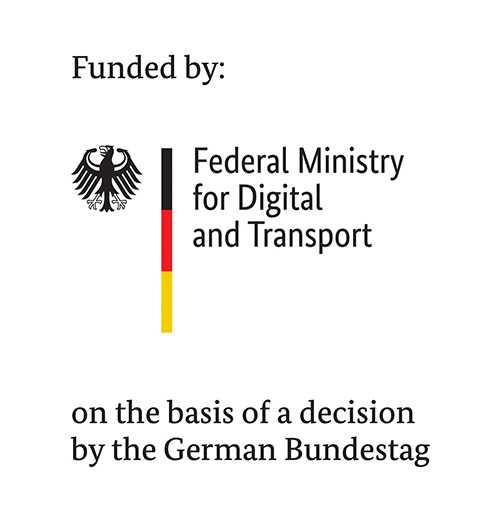The SKALA project aims to enable the synergetic interaction of artificial intelligence (AI) and blockchain technology in federated and decentralized platform ecosystems. It is intended to enable companies in production, logistics and supply chain management to work more efficiently and securely through trustworthy process automation and autonomization. Scalable reference applications are developed that support the horizontal, vertical and temporal networking of processes, organizations and systems.
SKALA
Scalable AI and blockchain solutions for automation and autonomization in value networks

The challenge
The challenge lies in overcoming the existing obstacles to cross-company data exchange in value creation networks. Currently, many AI and blockchain initiatives are proprietary, not very scalable and isolated. This leads to inefficient processes and untapped potential, especially for small and medium-sized enterprises (SMEs), which often do not have the necessary resources and skills. There is also a lack of mechanisms for data protection, data security and trustworthy data sources. SKALA addresses these challenges by developing scalable and interoperable solutions that enable automated and autonomous processes and ensure the continuous availability of trustworthy data.
Our service
As developers, we make a significant contribution to the development of the reference platform. Our experience from relevant projects and initiatives such as the Silicon Economy, GAIA-X, Catena-X and Factory-X as well as leading the open-source development of the Eclipse Dataspace Components (EDC) underline our role. Fraunhofer ISST brings this expertise to SKALA in order to develop a scalable and secure platform for automation and autonomization in value networks.
The result
The result of the project will be an extended federated reference platform that integrates industry- and use case-independent AI models and smart contracts. This platform will enable companies to implement automated and autonomous processes securely and efficiently from the store floor to the value network level. This increases innovation and competitiveness, while at the same time ensuring a high level of practicability through the integration of real company data and requirements.
Partners
- Fraunhofer Institute for Material Flow and Logistics IML
- Technical University Dortmund (TU Dortmund University) with the chairs
o Chair of Corporate Logistics (LFO)
o Chair of Materials Handling and Warehousing (FLW)
Funding
- Sponsor: Federal Ministry for Digital and Transport BMDV
- Duration: 06/2024-12/2025

 Fraunhofer Institute for Software and Systems Engineering
Fraunhofer Institute for Software and Systems Engineering